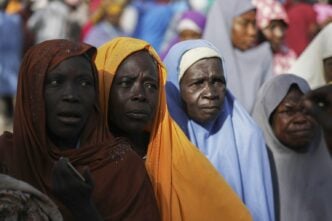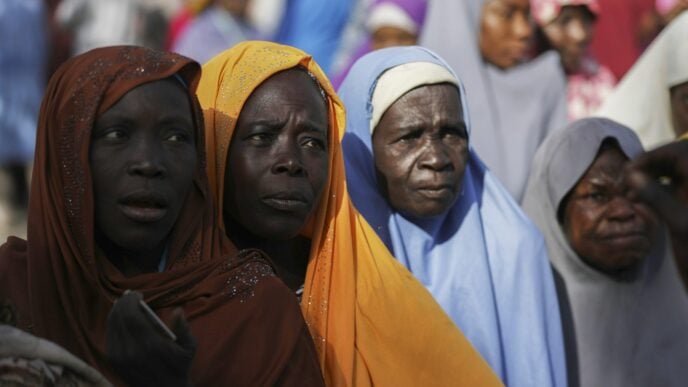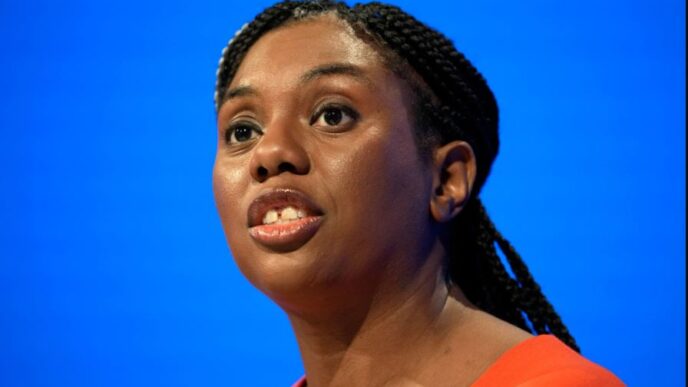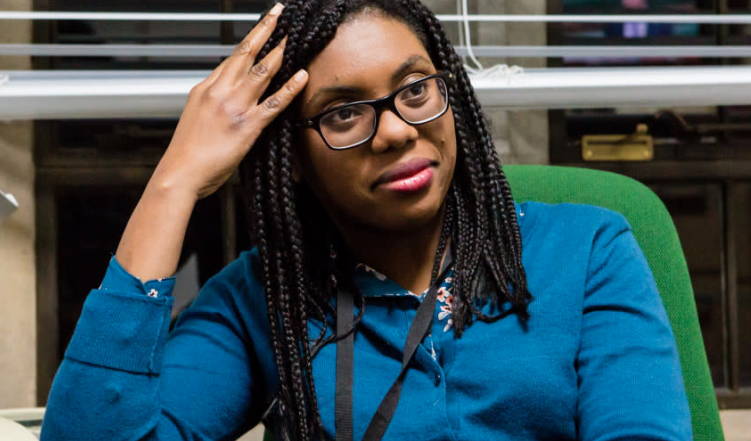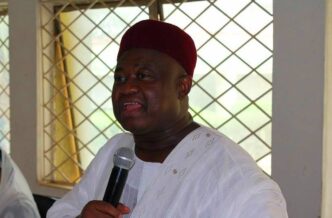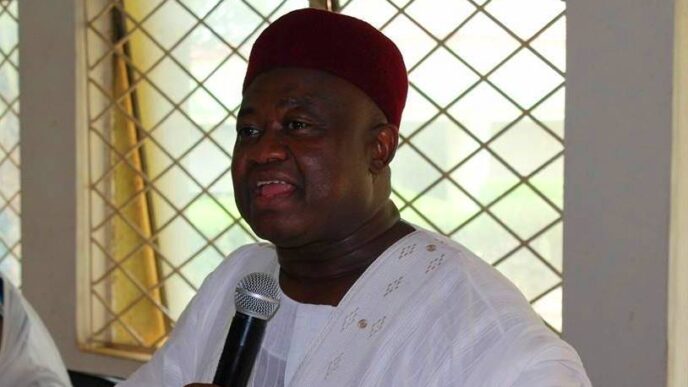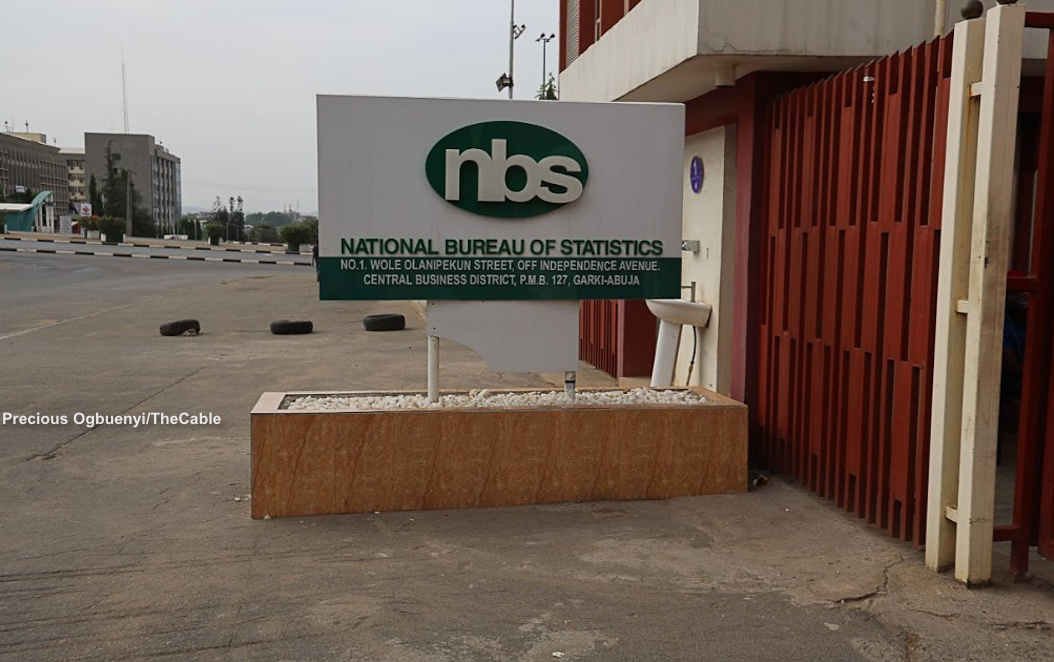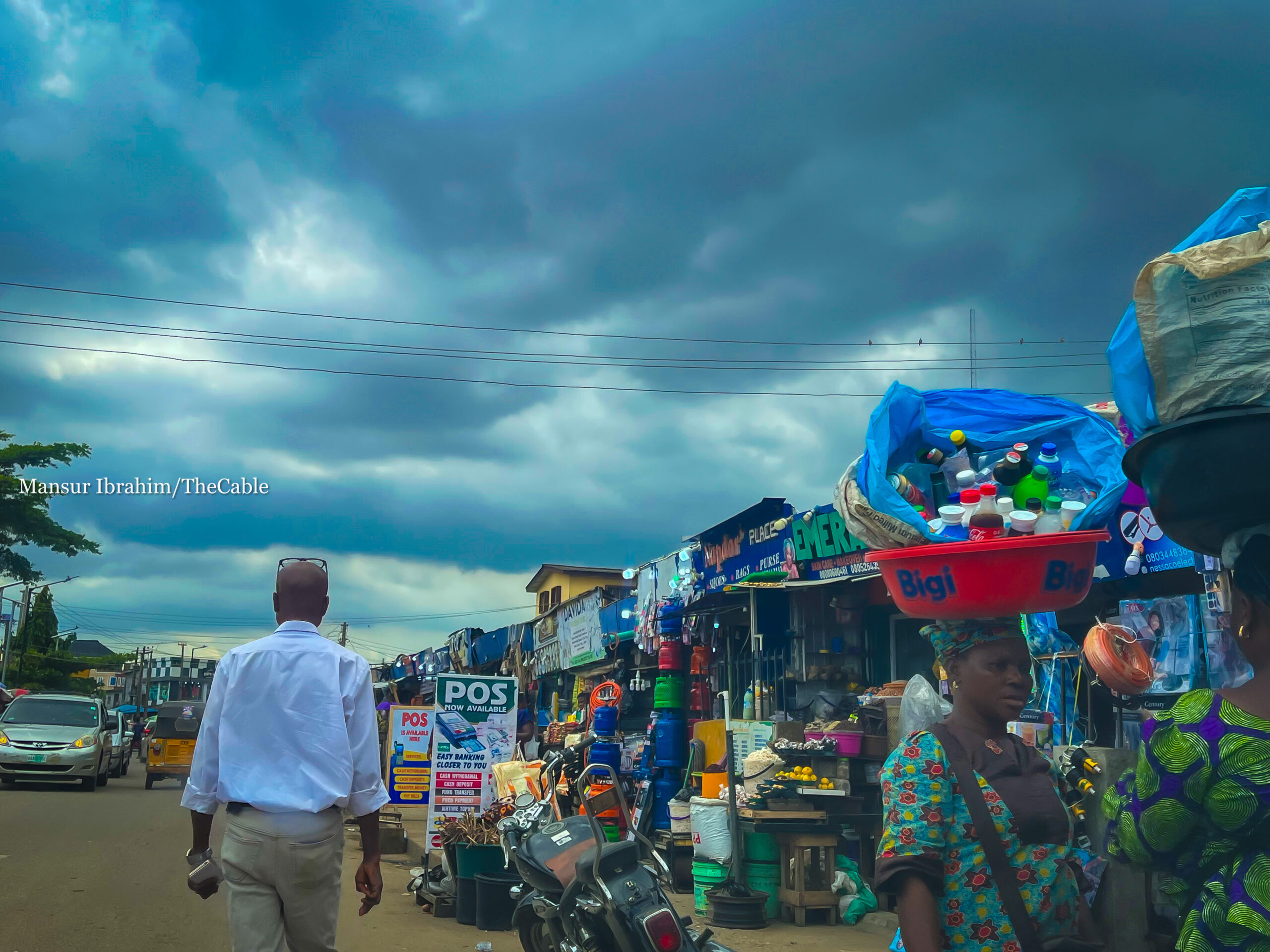Kemi Badenoch is the first black woman to become the leader of a major UK party
BY KUNLE LAWAL
Nigeria is often described as a paradox—a nation brimming with potential but weighed down by challenges. It is a place of resilience and brilliance, yet its global narrative is often clouded by criticisms, many of which come from within its own diaspora. A recent example is the remarks made by Kemi Badenoch, a prominent British politician of Nigerian heritage. Her statements, while perhaps reflective of personal observations, speak to a broader issue: the relationship Nigerians, especially those in the diaspora, have with their country.
When criticism of Nigeria is fair, it should serve as a call to action. But when it becomes dismissive or reductive, it risks doing more harm than good, especially when voiced by individuals with influence. For a nation like Nigeria—the most populous Black nation on Earth and one with immense cultural and economic significance—these narratives hold weight. They shape how the world views us and, more importantly, how we view ourselves.
The importance of love for country
Advertisement
Love for one’s country is not blind allegiance; it is the recognition that a nation is worth investing in, flaws and all. It means acknowledging its shortcomings while striving to be part of the solution. Nigeria, with its vibrant history and resilient people, deserves this kind of love, particularly from those who share its heritage.
When I turned forty, I made a personal commitment to dedicate my life to Nigeria. It wasn’t an easy decision, given the governance, security, and economic challenges the country faces. Yet, I believe that Nigeria is worth the effort—not just for its past or present, but for the future generations who will inherit it. This love for country is not about romanticising its struggles but about seeing its potential and committing to its growth.
Statements like Kemi Badenoch’s, which paint Nigeria in a negative light without context or nuance, do not help this mission. Instead, they deepen a narrative of hopelessness, discouraging the very people who have the power to effect change. Nigeria’s challenges are undeniable, but dismissing it outright undermines the efforts of those who are working tirelessly to improve it.
Advertisement
The role of Nigerians in the diaspora
The Nigerian diaspora plays a significant role in shaping the country’s global image. Nigerians abroad have achieved incredible success across various fields, from medicine to technology to the arts. Their stories are a testament to the potential of the Nigerian spirit. Yet, with this influence comes responsibility.
When members of the diaspora criticise Nigeria, they must do so constructively, with an understanding of the complexities that shape the nation. It is one thing to highlight issues; it is another to disparage a country in a way that fuels stereotypes or demoralises those still living there.
Love for country, especially for those abroad, is about finding ways to contribute to its growth, whether through investments, advocacy, or simply preserving its dignity in global conversations. It is about being part of the solution rather than amplifying the problem.
Advertisement
The marginalised identity of being Nigerian
One of the most profound realisations I’ve had in my work is that being Nigerian itself is a marginalised identity. Despite our diverse tribes, languages, and cultures, the challenges we face as Nigerians unite us in a shared struggle. Whether it’s the economic instability, governance failures, or the global perception of our country, every Nigerian carries a piece of this burden.
This shared experience should be a source of unity, but too often, it becomes a source of division. Instead of focusing on what we can achieve together, we are quick to point fingers, sometimes at the expense of our collective dignity.
When influential voices like Kemi Badenoch criticise Nigeria without context, they inadvertently contribute to this marginalisation. They reinforce the idea that Nigeria is a lost cause, which is far from the truth. Our struggles are real, but so is our potential.
Advertisement
Building a new narrative
To reposition Nigeria on the global stage, we need more than policy reforms or economic growth; we need a shift in how we perceive ourselves. Love for country is at the heart of this transformation. It is what drives individuals to see beyond the flaws and focus on the possibilities.
Advertisement
For me, this love has been the fuel that keeps me going despite the resistance I’ve faced, both internally and externally. It is what motivates me to continue advocating for political literacy, better governance, and national unity. It is what keeps me hopeful that Nigeria can rise above its challenges and fulfill its purpose as a leader among nations.
We need more Nigerians—at home and abroad—who are willing to invest in this vision. Criticism, when constructive, is necessary. But it must come from a place of love and a desire to see Nigeria thrive. Words carry power, and we must use them to uplift, not tear down.
Advertisement
A call to action
To Kemi Badenoch and others who share her perspective, I say this: Nigeria is more than its problems. It is its people, its culture, its resilience, and its potential. While your criticisms may stem from frustration or disappointment, I urge you to channel them into constructive action. Use your platform to inspire change, not despair.
Advertisement
And to every Nigerian reading this, whether at home or abroad, remember that our country’s story is still being written. We have the power to shape its future, but only if we approach it with love, unity, and determination.
Nigeria is not perfect, but it is ours. Let us not give up on it.
For the love of country,
Kunle Lawal
Views expressed by contributors are strictly personal and not of TheCable.
Add a comment

